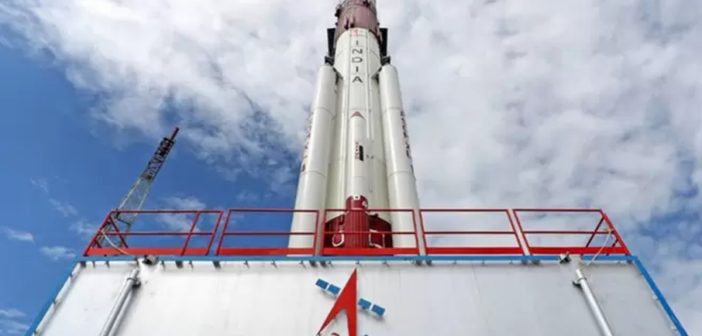Finance Minister Nirmala Sitharaman has announced a significant allocation of $13.4 billion for the Department of Space in the Union Budget 2025-26, providing a much-needed boost to India’s space sector.
The latest budget has earmarked $6.1 billion for capital outlay on space research, facilitating various ambitious projects, including satellite launches and deep-space missions. This enhanced budget supports upcoming major space launches such as Ganganyaan – India’s human spaceflight mission – the Moon mission, setting up the Indian space station, and Chandrayaan-4.
The increased investment is expected to integrate space-based applications into critical sectors such as agriculture, disaster management, and urban planning. This represents a substantial increase from previous budgets and reinforces the government’s commitment to expanding India’s space ambitions. The Union Budget 2024-25 had allocated $13 billion for the space sector, and last year, a $1 billion venture capital fund was launched to boost private sector participation in India’s space industry.
This rise in funding follows India’s impressive achievements in space technology, such as the successful Chandrayaan-3 lunar mission and the Aditya-L1 solar observation project, underscoring the nation’s growing space capabilities.
“The increase in the space budget is a significant step towards strengthening India’s space ecosystem, fostering innovation, and enhancing global competitiveness,” said Indian Space Association (ISpA) Director General, Lt. Gen. A.K. Bhatt (retd).
The government has also removed customs duty on ground installations for satellites, including spares, consumables, and essential goods used in building launch vehicles and facilitating satellite launches. “This long-awaited reform aligns with the industry’s needs, and we appreciate the government’s responsiveness to the sector’s requirements,” Bhatt added.
Additionally, the Finance Minister announced the launch of a National Geospatial Mission in the Budget 2025-26. The mission aims to modernize land records and enhance urban planning across India. This initiative will leverage the existing PM Gati Shakti framework to develop foundational geospatial infrastructure and data, facilitating improved design and execution of infrastructure projects.
Geospatial refers to data or information associated with a specific location on the Earth’s surface. The National Geospatial Mission is expected to significantly impact various sectors, particularly urban development and land management. Experts noted that the announcement of the National Geospatial Mission shows the growing commitment of the government to utilize the downstream capabilities of the space tech sector.
“The users in the government, private sector, and the industry have lived with the lack of good foundational data for a very long time. The National Geospatial Mission will provide the necessary resources to create geospatial data that will serve as a foundation for social and economic development,” said Esri India Managing Director Agendra Kumar.
With this record $13.4 billion in funding for the space sector and new initiatives like the National Geospatial Mission, India is demonstrating its commitment to advancing its space capabilities and strengthening its presence in the global market.





